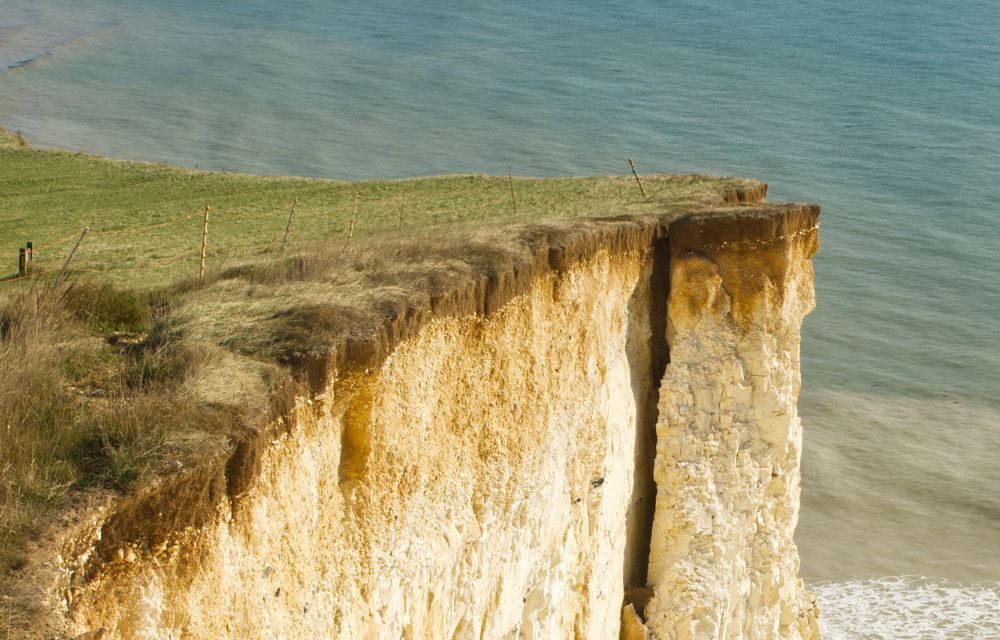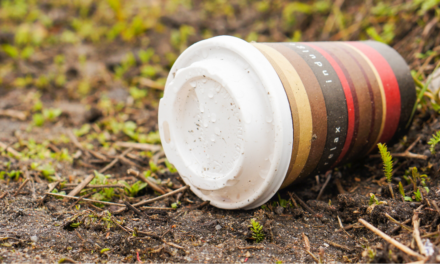East Sussex is home to a spectacular coastline of beaches, rolling hills, and cliffs that draw visitors in throughout the year. However, we always see a rise in tourism during the summer months. Some are visiting from within East Sussex or neighbouring counties. Others are from much further away.
Regardless of where the visitor is from, we know that not everyone understands the dangers involved with our coastline, especially when it comes to cliff safety. A lack of awareness can sometimes result in minor incidents and, other times, in more life-threatening accidents.
The following three tips are essential to help keep you and your loved ones safe while enjoying your visit to our beautiful coastline.
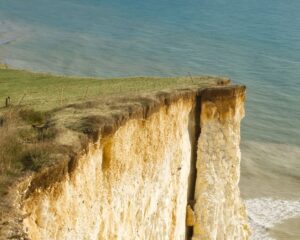
Huge crack in cliff edge at Beachy Head.
Keep away from cliff edges
The iconic images of the south downs and Beachy Head bring in tourists eager to capture the perfect picture and experience the beauty first-hand. However, often people go far too close to the edge, unknowingly putting themselves and others in grave danger.
Cliff edges are unstable and crumble without any warning, so enjoy the scene from a safe distance. Don’t risk your life for a photo – it might be the last one you take!
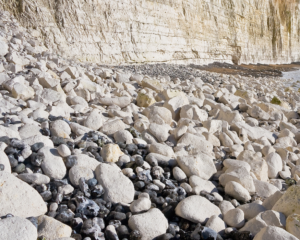
Rocks at the cliff base.
Avoid cliff bases due to falling rocks
While many people think only the cliff edge poses a risk, cliff bases can also be very dangerous. Cliff edges can crumble and break apart suddenly, making the base of a cliff a dangerous place to be if this happens. The best way to keep yourself safe is to stay away from the base to avoid any crumbling cliffs or falling rocks. If you are having a picnic or sunbathing, ensure you set up station away from the base.
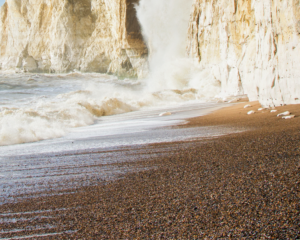
Tide coming in at the cliff base.
Don’t get cut off by the sea at high tide
Unless you’ve grown up by the coast, you may not realise that the sea rises and falls twice a day. When the sea (or tide) comes in, the sea level rises and there will often be little beach left. This is especially dangerous when walking on the beaches below the cliffs. Every year, the coastguard has to rescue people that have got cut off by the sea and stranded.
Before you visit the beach, always check the tide times and plan your trip around them. It’s also advised that you carry a mobile phone with you in case you need to call for help. When unsure, do your research and always opt on the side of being safe. A nice walk isn’t worth the risk!
What do I do in an emergency?
If you find yourself in an emergency, call 999 and ask for the coastguard. If you witness an emergency incident, do not attempt a rescue or put yourself at risk. Instead, call 999 and ask for the coastguard and wait somewhere safe for help to arrive.
